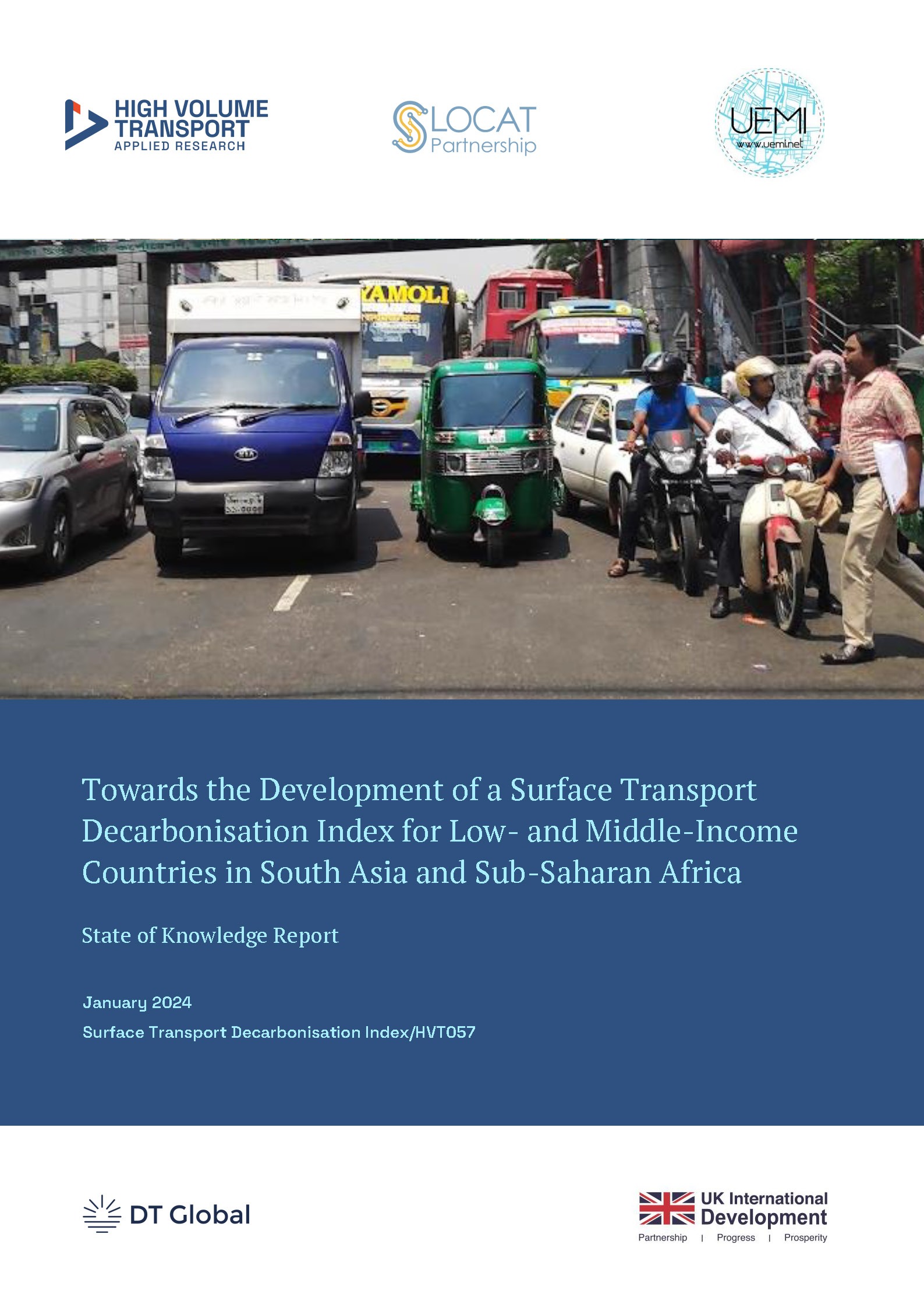Transport Decarbonisation Index:
Tracking progress Towards net-zero emissions by 2050



The High Volume Transport (HVT) project “Transport Decarbonisation Index (TDI)” aims to assist Low and Middle-Income Countries (LMICs) in Africa and South Asia in reducing greenhouse gas emissions in surface transport by providing a diagnostic toolkit. The TDI assesses a country’s preparedness in achieving net-zero emissions by 2050, enabling comparisons with other nations and tracking long-term progress. This tool will help LMICs better understand which measures are most effective for their specific contexts, considering factors such as development status and transport system characteristics. The TDI not only diagnoses decarbonisation, but also measures progress and indicates whether more stringent measures are required.
The TDI project is under the High Volume Transport research programme funded by UK Aid from the Foreign, Commonwealth & Development Office (FCDO). The project is implemented by the HVT consortium partners: SLOCAT, Urban Electric Mobility Initiative (UEMI) and experts Lewis Fulton, Pierpaolo Cazzola and Jacob Teter.
State-of-Knowledge Report
For the Transport Decarbonisation Index project, the project consortium developed a State-of-Knowledge report that provides an extensive overview of existing scientific and grey literature, indexes, and initiatives relevant about surface transport indicator assessments. This State-of-Knowledge Report, titled “Towards the Development of a Surface Transport Decarbonisation Index for Low- and Middle-Income Countries in South Asia and Sub-Saharan Africa” provides the basis for the development of a methodology for a surface TDI which is envisioned to be a diagnostic tool designed to assist policymakers in LMICs – particularly in South Asia and Sub-Saharan Africa – towards formulating targeted emission reduction strategies.
This report investigates the following: the importance of surface transport in achieving decarbonisation in the transport sector; commitments and actions towards decarbonising surface transport; review of methods and elements that are important in developing such indexes; and review of similar indexes as well as related indicator initiatives, databases and portals.
